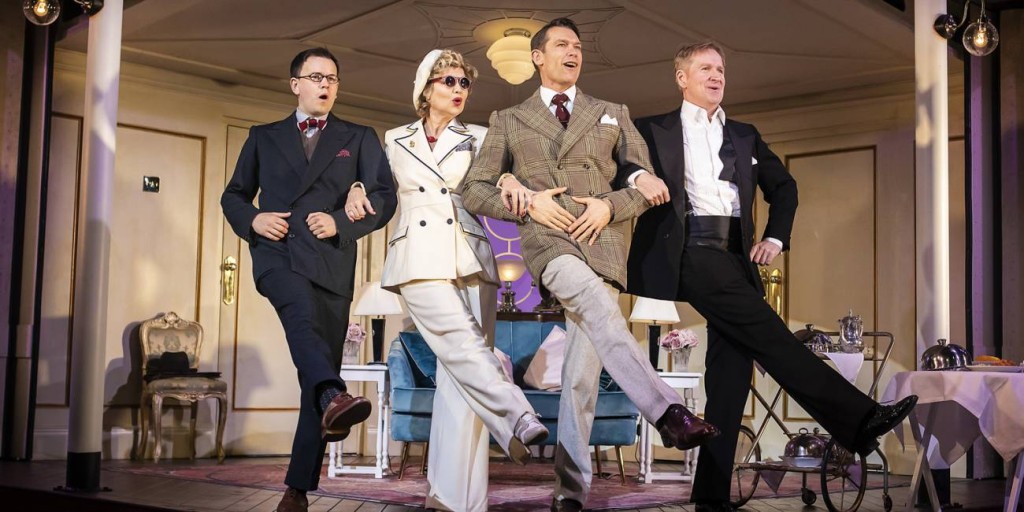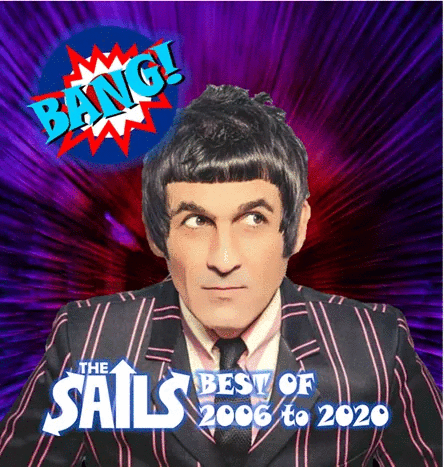It’s the 1930’s and we’re all aboard the luxury cruise liner the Italian Castle as it take a voyage across the Atlantic and over to New York. The boat is a magnificent beast, and it’s one of the first things that strikes you about this production. Colin Richmond’s striking set is a beautiful backdrop for this absurd play by Tom Stoppard. As one of the finest playwrights of the 20th century, I think it’s safe to say I expected more from a Stoppard play. Thirty five years on from its original production and it’s revival really is nothing spectacular.
Is it a musical, is it slapstick or is a tragedy? I’m still none the wiser.
The plot centres around two successful playwrights Sandor Turai, played by the famed John Partridge (think Rum Tum Tugger from Cats, or Christian Slater from Eastenders) and Alex Gal (Matthew Cottle) who are both attempting to plot an ending to their latest play over four days at sea, accompanied by a young composer Adam Adam (Rob Ostlere). The leading lady of their play, Natasha Navratilova (Issy van Randwyck) is the current squeeze of Adam however there is a love triangle at sea as her former lover Ivor Fish (Simon Dutton) declares his love for her in a declaration overheard by all three. Choppy waters lie ahead with a storm both on and off board with much confusion onboard and from the audience.
Much of that comes from cabin steward Dvornichek (Charlie Stemp) who while attempting to fill in many of the blanks ends up causing far more confusion with the speed at which he delivers. I mean, it’s obviously intentional but it just doesn’t quite work. I could tell you what happened in act one, but as soon as the curtain went up during act two I got very lost.
Turai’s later attempt to save the play, after Adam overheard Ivor’s declaration, by rewriting it actually brings much irony as it is John Partridge who actually ends up saving this play and holding it together.
It’s very difficult to know how much of the staggered delivery, discomfort and, what appears to be, mismatched cast is intentional, but if it’s not then Partridge is indeed the leader. Throughout the play his hyperbolic and exaggerated gesticulations showcase his experience and how much he is just longing to break out into song or dance but the set nor the script is designed for it.
I’m not quite sure what Stoppard’s script is getting at in this play. Is it supposed to deliberately and ironically be a spoof of this type of play? An imitation of the 1930’s? Or intentionally confused?
Either way it showcases that much like the Titanic, you can engineer a masterpiece with the most magnificent machinery (cast) but unfortunately, it can still hit an iceberg.
Review by Nadya Jaworskyi




